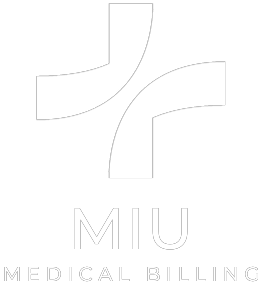Introduction
Denial codes in medical billing influence the revenue cycle and financial status of healthcare providers. It is important for MIU Medical Billing to be informed of these denial codes to facilitate the right billing approaches toward receiving timely and adequate reimbursements. Here is a complete reference that examines the frequency of denial codes, the meaning of each one, and some ways to avoid them. Thus, by understanding the subtleties of denial codes in medical billing, MIU Medical Billing can optimize its process and increase its profits while avoiding work with dishonest insurance companies and paying extreme attention to its patients.
Understanding the Top Denial Codes in Medical Billing
Hence, the basis of solving the issue of denial codes in medical billing is premised on understanding the typical ones. To be effective, MIU Medical Billing must be knowledgeable of the most common denial codes that emerge in medical billing, including duplicate claims, coordination of benefits, and timely filing concerns. In this way, if MIU Medical Billing understands the meanings of and reason behind these denial codes in the medical billing context, it can design respective measures to reduce the implications in the revenue cycle.
Preventing Duplicate Claim Denials
Denial code 18 technically implies that the services require the submission of multiple claims for the same medical service and is common in medical billing. Some of the denials can be averted from MIU Medical Billing by having proper tracking in the submission of the claims and making a point of filing the claims only once and with proper details. Appreciating the role of denial code 18 in medical billing assists MIU Medical Billing in minimizing the time spent and other repetitive work in processing claims, thus bettering the company’s financial consciousness.
Addressing Coordination of Benefits Denials
Coordination of benefits, or COB, is also an important aspect of denial codes in medical billing, and another denial code is code 22. This code means that the patient may have a second-tier health plan that has to be billed first before the primary plan. Administrative problems, such as code 22 denials, can be handled by MIU Medical Billing by ensuring that the insurance status of the patient is correct and that insurance authorization is conducted in a very efficient and good way. Acknowledging the existence of code 22 in medical billing denials signifies the obligatory advancement in the provision of adequate information about coverage to patients.
Overcoming Timely Filing Denials
That is why such problematic reasons for denial, such as timely filing, which is coded 29, are considered the most difficult for medical billing. These are denials arising from claims submitted after the paper’s filing deadline. It also means that MIU Medical Billing can avoid such rejections as code 29 denials through improving the frequency of claim submissions and the strict tracking of the filing periods. That is why the effects of code 29 on medical billing denials can go a long way in emphasizing the necessity to submit the claims as soon as possible and with minimal errors in the revenue cycle management.
Navigating Exceeding Fee Schedule Denials
Another frequent problem in medical billing is denial code 45, which means that charges have been made beyond the fee schedule. MIU Medical Billing can do this to reduce these denials focusing on paying attention to the payer’s fee schedule and charges against the set caps. Understanding the importance of code 45 in medical billing denials allows for preventing the issues with the MIU Medical Billing’s pricing policy and possible subsequent revenue loss.
Addressing Non-Covered Charges Denials
Non-covered charges commonly present under code 96 are among the most common reasons for billing denial. This code implies that the service offer is not part of the patient’s benefit package as per his/ her policy. MIU Medical Billing can limit code 96 denials by confirming whether the services to be offered come under the patient’s insurance policy and compel patients to comprehend their coverage. By interpreting code 96 in medical billing denials, MIU Medical Billing is in a position to minimize losses and enhance the flow of information to clients on plan restrictions.
Addressing Bundled Services Denials
Medical billing denial code 204, in particular, is one of the most important entries in the world of medical billing denials. This code is used when there are services that are billed individually but should have a common code. Code 204 denials can be avoided at MIU Medical Billing by ensuring that there is a regular update on the bundling rules and ensuring that all charges incurred are checked several times before the claims are submitted. Understanding the importance of code 204 in medical billing denials it focuses the attention on the question of correct coding as one of MIU Medical Billing’s business priorities.
Handling Maximum Benefits Reached Denials
Denial code 253, which simply means that the maximum benefit has been achieved, is another issue that is commonly encountered in medical billing. This code is used when a patient has used up all his / her allowable visits in a year. To ensure that it does not receive code 253 denials, MIU Medical Billing must ensure that it continuously checks the benefit limits of the patients and briefs them appropriately concerning their status. In the context of medical billing denials by way of refusals, assessing the effects of code 253 on patient sensitization allows MIU Medical Billing to arrange for other means of reimbursement where essential to maintain a smooth revenue cycle.
Conclusion: Mastering Denial Codes for Optimized Revenue Cycle Management
So, denial codes in medical billing can be a problem and could be very intricate in terms of MIU Medical Billing’s receipt of appropriate reimbursement and, therefore, by mastering denial codes’ meanings, MIU Medical Billing can improve its revenue cycle management. By managing the high denial codes such as claim duplicates, coordination of benefits, timely filing issues, fee schedules, and non-allowed chargers, MIU Medical Billing can improve on their revenues, minimize unnecessary aggressiveness in an already congested market, and give their best to their patients. A mastery of complex denial codes involved in medical billing is one of the effective ways by which the long-term sustainability and profitability of MIU Medical Billing.




